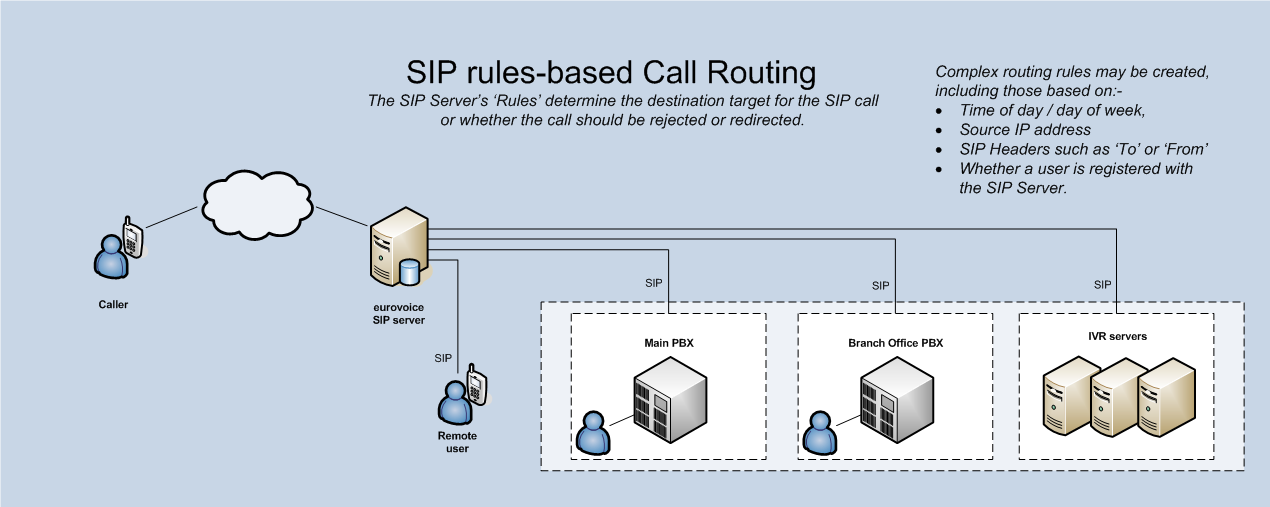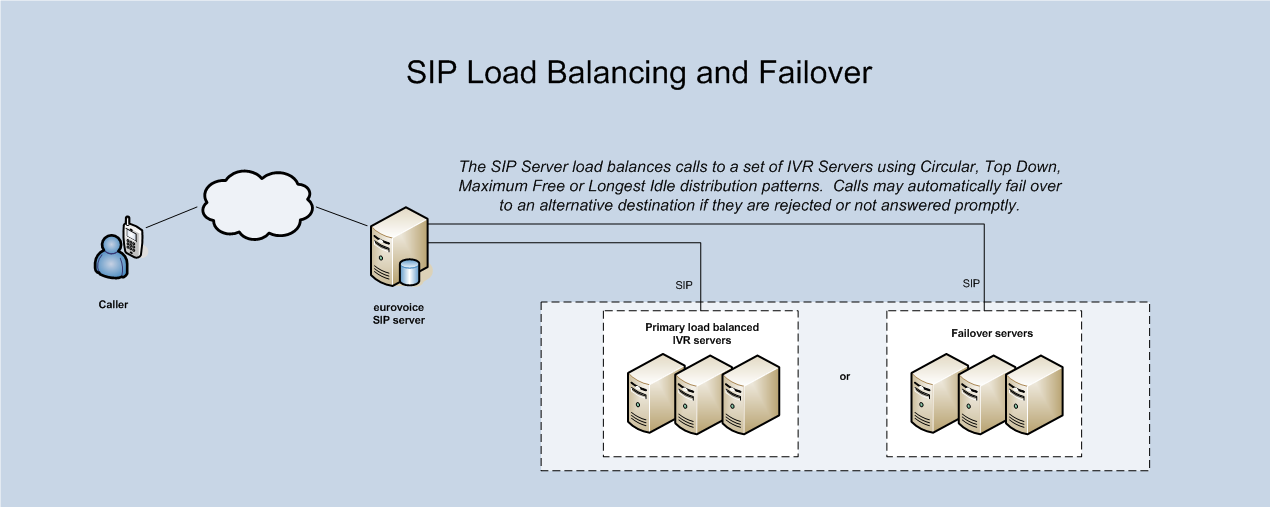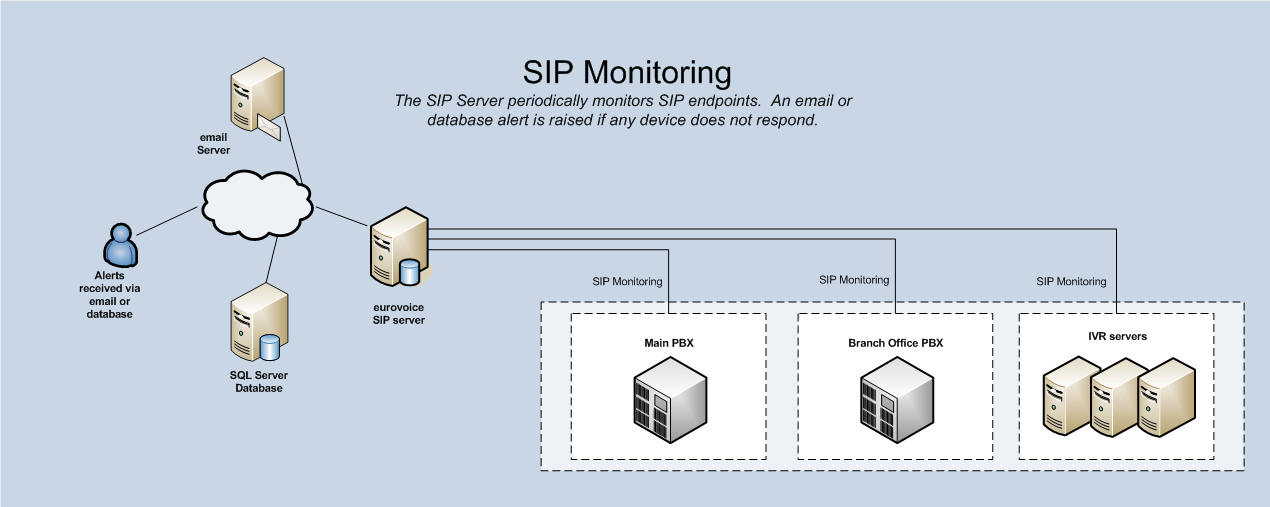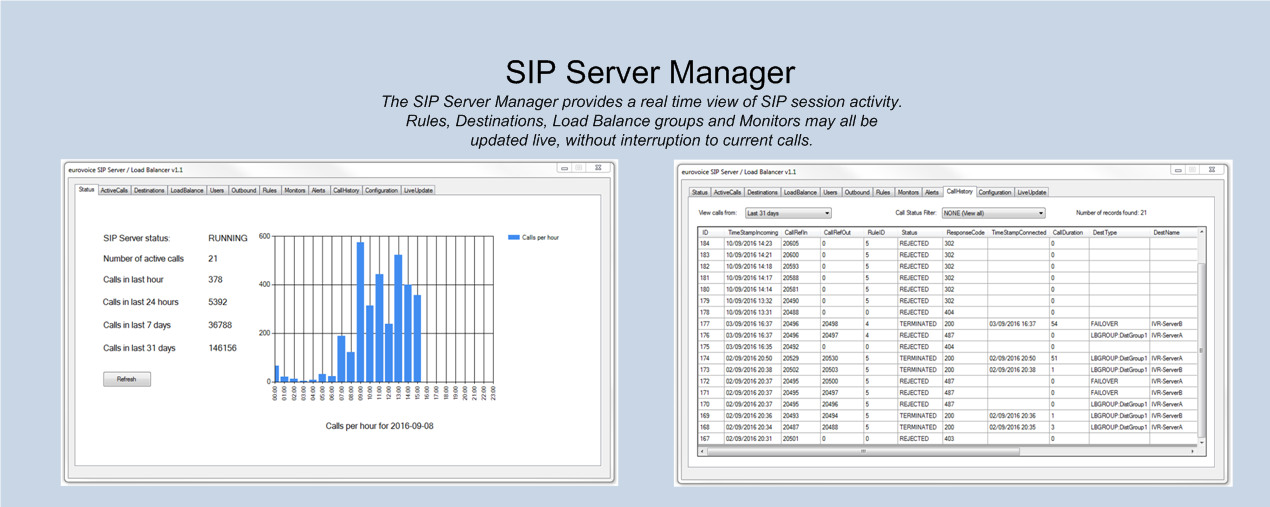eurovoice SIP Server may be used as a SIP Registrar or a Redirect Server. It also supports Load Balancing, Advance Call Routing, Monitoring of SIP endpoints and Alerting.
CALL ROUTING

Incoming calls arriving at the SIP Server may be rejected, redirected, forwarded to a custom location or passed to a load balance group. An unlimited number of routing rules are considered for each incoming call. The action taken will follow the first rule that matches the necessary criteria.
Calls may be routed depending on different criteria such as; the content of specified SIP Headers, whether the ‘To’ or ‘From’ user is registered, the IP address or port of the incoming message or the time of day or day of week. Complex rules may be created using any combination of such. The SIP Server Manager provides a simple-to-use GUI for the creation of rules and the order in which they are processed. Criteria may be matched using simple ‘Windows’ pattern matching – i.e. using familiar ‘*’ and ‘?’ characters. Regular Expressions may also be used for more complex matching requirements.
LOAD BALANCING

The eurovoice SIP Server provides an easy-to-use Load Balancing capability which allows for distribution of calls in the following patterns:-
Circular / round robin
Top Down
Maximum Free
Longest idle
The SIP Server Manager provides a GUI to configure ‘Destinations’ and then to assign Destinations to Load Balance Groups. An unlimited number of Destinations and Load Balance Groups may be defined, modified and deployed whilst the SIP Server is running and processing live calls.
Hence for example, with a few mouse clicks, it is straightforward to temporarily remove a destination server from a load balance group in order to perform maintenance on that server. A routing rule could then be added to allow only calls from a test phone to the updated server. Once the update has been verified, the server can be added back into the load balance group. This flexibility, whilst live calls are being processed, allows network managers or system administrators to keep their systems running 24/7.
FAIL OVER AND ALERTING
Each SIP Server ‘Destination’ may include a backup ‘Fail Over’ destination and an optional alert notification. Should the original Destination either reject the call or fail to respond within a predefined timeout, the SIP Server will terminate that call attempt and try the Fail Over destination instead. An Alert – an email, database entry or both – can be raised to notify the network manager that a Fail Over has occurred. The Fail Over destinations may also be configured to forward failed calls to a further Fail Over destination, thus ensuring continuity of service in the situation of multiple system failures. Fail Over may be applied to both regular routed calls or to load balance groups.
MONITORING

In addition to the raising of an Alert should a destination fail to accept a call, the SIP Server will actively monitor an unlimited number of SIP endpoints.
The SIP Server will send periodic SIP OPTIONS requests to defined SIP endpoints at a configurable interval. Should an endpoint fail to respond, an Alert – either an email, database entry or both – will be raised. The integrity of the systems and network connections are actively monitored so remedial action may be taken promptly.
SIP SERVER MANAGER

The SIP Server Manager provides:-
· A real-time view of the SIP Server status, the current active calls and a graphical ‘calls-per-hour’ view for the current day.
· A history view of routed or rejected calls.
· An ability to define routing rules, SIP header manipulation, destinations, load balance groups, users, monitors, alerts.
· A ‘live-update’ feature so that routing rules, destinations, load balance groups, users and monitors may be changed whilst the SIP Server is running and handling calls.
· A view of alert events.
